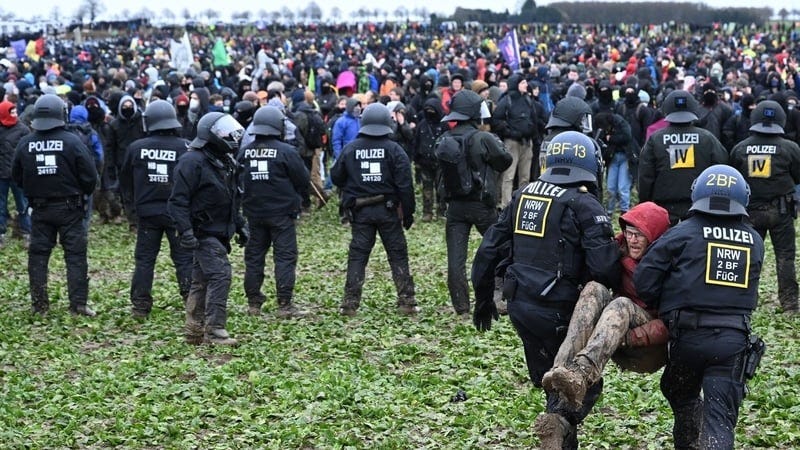The wages of Germany's nuclear vandalism
How the mirage of an all-renewables grid became a political death sentence
Germany’s gormless coalition government breathed its last this week, and will hardly be mourned. The coalition failed mostly for one reason: it stuck doggedly by an energy policy that made no sense. Germany’s decision to shut down its nuclear power plants before it had any reasonable low-carbon replacement was an astonishing act of self-harm-via-policy: a spectacular own-goal that’s now exporting German instability around Europe. How could a country so devoted to government by consensus paint itself into such a corner?
The broad outlines of the story are well known: since the turn of the century, successive German governments of both the left and right made three big strategic energy choices, and got it wrong all three times.
First, they chose to rely largely on cheap Russian gas for the bulk of their electricity and industrial process heat. Then they chose to shut down their perfectly fine, perfectly safe, perfectly reliable suite of nuclear power plants. Then they thought they could make up the shortfall with wind and solar.
Each decision, on its own, was bad.
Taken together, they have been a catastrophe.
That Putin was a belicose despot was clear to the observant from day one, and became only more obvious as time went on. That nuclear power is safe and zero-carbon is one of those truths that became politically unsayable in some quarters. That flaky wind and intermittent solar can’t replace nuclear as the backbone of a stable electrical grid is something everyone knew, but many found it convenient to pretend not to know.
That the studied indifference to these well-known facts would lead Germany to an energy dead-end could have been foreseen.
When Putin’s aggression became too much to overlook, Germany had already committed to shutting down its nuclear sites, leaving the country without a reliable supply of base-load power. Soon Greta Thunberg was getting arrested in picturesque little German villages slated for destruction so coal plants could be opened again to cover the shortfall.
In a twist we outsiders will always find inexplicable, the Green Party was part of the coalition government pushing this line. The coalition was soon frantically buying up LNG around the world, bidding up prices, instead of accepting its blunder over nuclear.
The results were easily foreseeable. Energy prices shot up, but also became far more volatile. The economy stopped growing, and industrial production went into decline as energy-intensive industries moved across the border to lower-cost jurisdictions. This messed up the fiscal math, as recessions always do, but because of quirks in German budgeting law the country couldn’t just borrow the difference. And it was the budget fight that became the final straw, breaking the coalition.
The through-line from bungled energy policy to political disarray doesn’t get any more direct than that. The coalition’s paralysis in the face of the very predictable outcome of its policies is, to me, a sign of the way deeply ideological thinking can destroy otherwise smart people’s ability to make sensible decisions.
The German shit-show this year proves beyond a reasonable doubt that you can’t decarbonize without nuclear, and attempts to do so will imperil any government’s stability. Without nuclear and with far less Russian gas, Germany was left to try to balance its grid through a combination of high energy prices, which tanked the economy, and aggressive energy imports, which jacked up energy prices around Europe, effectively exporting the impact of its policy blunders. Things got so bad Norway is now moving to limit electricity exports to Europe: Norwegians see no reason why they should have to pay higher bills because politicians in Berlin are terrible at their jobs.
Every bit of this sad chain of events has its roots in the irrational fear of the only safe, stable source of baseload power we have: nuclear fission. Green politicians went to war against the laws of thermodynamics and ended up vandalizing what ought to have been the jewel in the crown of Germany’s decarbonization drive. The result is one of the most baffling political own-goals I can remember.
Thankfully, the almost-certain-to-be-next-chancellor seems to grasp there’s no way out of this morass without Nuclear, although several of the existing plants have been dismantled to a point where it’s going to be expensive as hell to bring them back online.
There’s no silver lining here. Very bad mistakes have been made, with very bad consequences for everyone involved. The only hope is that people in other countries will understand the scale of the blunders, and act accordingly.



Can you please FedEx this column to Gavin Newsom?
All of this is so ironic when you consider that Germany *discovered Nuclear fission*